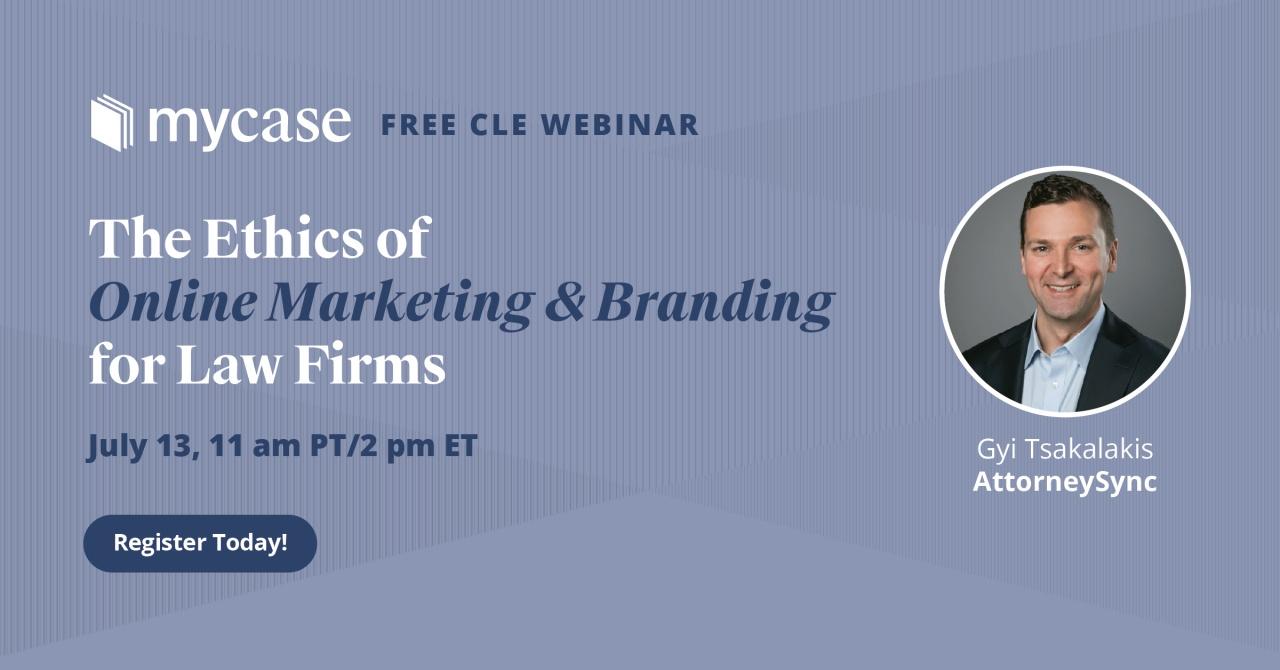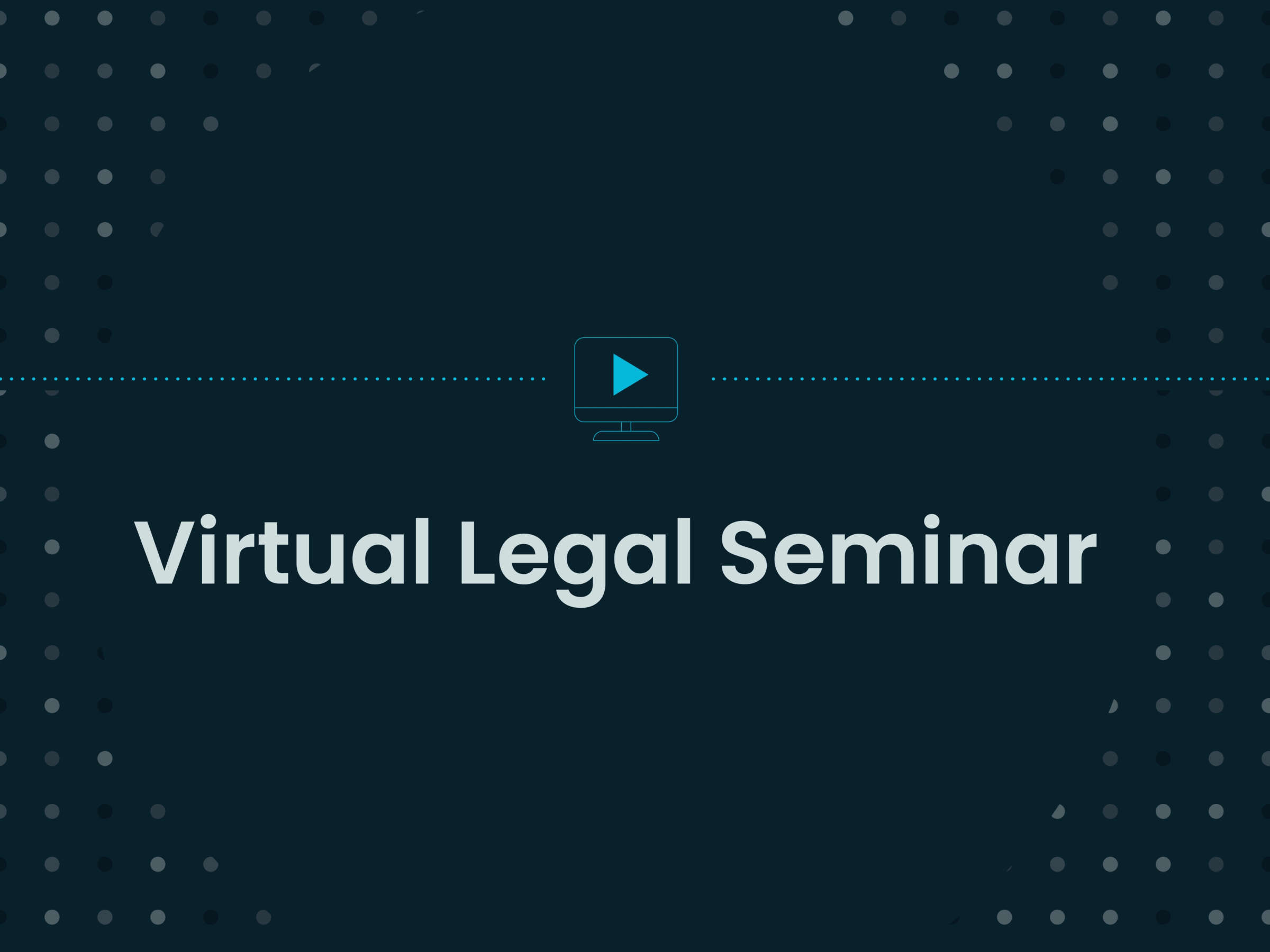Key takeaways
Law firm compliance covers seven pillars, including confidentiality and data privacy, regulatory filings, and everyday ethical conduct.
Enforcing every compliance requirement can be difficult due to rapid rule changes across jurisdictions, limited staff bandwidth, and escalating cyber threats.
Automate tracking, alerts, and record-keeping by creating standardized policies and deploying legal-specific tech, like MyCase’s security and compliance tools.
Law firm compliance has moved from a back-office task to a front-page priority. The tighter your grip on rules, filings, and safeguards, the easier it is to run a profitable firm that enforces every regulatory requirement.
Compliance-related worries show up in the numbers. In the 2025 Legal Industry Report, 61% of lawyers flagged cybersecurity as their top remote-work worry, while 65% named data privacy and confidentiality. So it's no surprise that 26% adopted legal-specific AI tools precisely because those vendors understand attorneys’ ethical requirements.
But more than a smart business decision, law firm regulation oversight is an ethical obligation. As a managing attorney at your firm, you have a responsibility to ensure that you’re adequately supervising the attorneys and staff at your firm.
In this article, we’ll take a closer look at the key areas of compliance, the challenges you may face, and what you can do to manage compliance effectively.
What Are the Key Areas of Compliance for Law Firms?
Law firm compliance requirements cover areas including regulatory filings, financial safeguards, anti-money laundering rules, confidentiality and data integrity, marketing accessibility guidelines, licensing and continuing legal education (CLE), and ethical conduct. Below, we’ll cover each area in more depth.
1. Regulatory Compliance
Law firm regulatory compliance starts with the basics of running a licensed business, such as registering your entity.
Most states also require written policies for conflicts of interest, trust-account reconciliation, and document retention, all of which regulators can audit on short notice.
Beyond the back-office rules, every jurisdiction polices how attorneys publicly present themselves. For example, law firm websites, billboards, and social posts must follow bar guidelines on testimonials, fee claims, and “specialist” language. A misstep here can result in a legal malpractice lawsuit or a formal ethics complaint.
Common regulatory compliance requirements:
Business registration and annual state filings
Mandatory malpractice insurance levels
Conflict-of-interest screening procedures
Trust-account reconciliation and reporting
Document retention and destruction schedules
Bar-approved advertising and website disclosures
2. Financial Compliance
Financial compliance in law firms typically falls into two categories: firm-wide requirements and case-specific obligations.
At the firm level, all law practices that accept credit card payments must comply with Payment Card Industry Data Security Standard (PCI-DSS) rules. PCI-compliant law firms use processors that encrypt data end-to-end and avoid storing payment information in plain text. Following a clear PCI compliance plan or checklist helps firms keep those controls tight without adding processing surcharges.
The second tier applies to lawyers who handle client funds. They may be subject to regulations that require them to place funds in an IOLTA account that is kept separate from a firm’s operating funds. These accounts must be reconciled regularly with bank balances, trust ledgers, and client ledgers. Law firms may also restrict access to trust accounts to prevent misuse or unintentional commingling of funds.
Managing client funds with spreadsheets can make it difficult to monitor accounts in real time. Legal accounting software can reduce manual work by automatically categorizing deposits as trust or operating, blocking overdrafts, and exporting clean reconciliation reports. For example, MyCase offers legal accounting tools that notify you when a proposed transfer exceeds a client’s available trust balance, giving you time to resolve the issue before it causes a violation.
Common financial compliance requirements:
PCI-DSS credit card standards
IOLTA trust-account segregation
Three-way trust reconciliations
Fee-sharing and surcharge rules
IRS 1099-K reporting for payment processors

3. Anti-Money Laundering (AML) and Counter-Terrorist Financing (CTF) Compliance
When you accept large retainers, wire funds, or handle real-estate closings, your firm can become an unwitting conduit for illicit money flows. AML/CTF rules require lawyers to “know your customer” (KYC), verify the source of funds, and flag anything that looks suspicious.
Robust KYC and Customer Due Diligence (CDD) checks, like photo IDs, beneficial-ownership records, and sanctions screening, are the first line of defense.
Modern payment platforms can automate much of this heavy lifting by cross-checking clients against watchlists in real time and alerting you to unusual transaction patterns, cutting both risk and manual workload.
Common AML/CTF compliance requirements:
KYC identity verification and beneficial-ownership logs
Ongoing transaction monitoring with red-flag thresholds
Suspicious Activity Reports (SARs) when anomalies surface
Sanctions and politically exposed person (PEP) screening
4. Confidentiality and Data Integrity
Law firms are responsible for safeguarding sensitive client data under a combination of privacy laws and ethics rules. HIPAA protects medical records, while consumer data falls under regulations like the CCPA and GDPR. The ABA Model Rules require attorneys to make “reasonable efforts” to prevent unauthorized access to client information.
One of the most effective ways to demonstrate compliance is by maintaining a regularly updated information security policy that outlines your firm’s approach to encryption, access controls, incident response, and vendor oversight.
Because breaches often stem from simple mistakes, such as a misdirected email or an unsecured device, many firms now use cloud-based platforms that integrate security into daily workflows.
Common confidentiality and data integrity requirements:
End-to-end encryption for data in transit and at rest
Role-based permissions and multi-factor authentication
HIPAA and state-specific data-handling procedures
Secure client-portal messaging (no unencrypted email threads)
Document-access logs and routine penetration testing
5. Marketing-Related Compliance
Your firm’s website and ads can be potential ethics landmines, and each jurisdiction enforces its own advertising compliance requirements. Law firm advertising rules typically require firms to use standard disclaimer text, avoid language that promises specific results, and list a responsible attorney for any promotional materials.
On top of bar rules, accessibility laws are also important to know and follow.
For example, you may receive demand letters or fine notices if your firm's website doesn’t comply with standards like the Web Content Accessibility Guidelines (WCAG) and the Americans with Disabilities Act (ADA).
Common marketing compliance requirements:
Bar-approved headlines, testimonial use, and fee disclosures
State-specific disclaimers on landing pages and email campaigns
Web-accessibility standards (WCAG 2.1), plus AODA/ADA requirements for screen-reader compatibility
Clear opt-in processes for newsletters and remarketing cookies

6. Licensing and Continuing Legal Education (CLE) Compliance
Lawyers must stay current on licensing deadlines and CLE requirements, which vary by jurisdiction. Missing a renewal or falling short on CLE credits can result in temporary suspension or other penalties, so it’s important to track due dates and learning hours closely.
For example, California requires 25 CLE hours every three years, while Texas mandates 15 hours annually, split between participatory and self-study learning.
Resources like LawPay’s CLE seminars help attorneys manage these obligations by allowing them to register for courses, earn credit, and automatically record completions before deadlines sneak up.
Common licensing and CLE compliance requirements:
Annual or biennial bar dues and registration forms
Jurisdiction-specific CLE hour minimums and topic carve-outs
Credit tracking for multi-state practitioners
Specialty-certification renewals
Timely self-reporting of completed courses to each bar
7. Ethical Conduct
Beyond licenses and credit hours, day-to-day decisions at your firm are also shaped by ethical standards, many of which are outlined in the ABA Model Rules of Professional Conduct. These rules address key areas such as competence (Rule 1.1), diligence (1.3), client communication (1.4), confidentiality (1.6), and supervision of non-lawyers (5.3). Failure to meet these standards can lead to fee disputes, bar discipline, or malpractice suits.
A firm-wide ethics framework with clear policies and routine file reviews can reinforce these standards in everyday operations. For ongoing compliance, firms should ensure their ethics policies and client management tools align with lawyer professional conduct rules.
Common ethical conduct compliance requirements:
Timely, transparent client communication
Conflict-of-interest checks and waivers
Safeguarding client property and trust funds
Truthful marketing and courtroom candor
Proper supervision of staff and third-party vendors
What Are the Main Challenges of Maintaining Law Firm Compliance?
The biggest hurdle in managing law firm compliance requirements in the U.S. is keeping pace with shifting rules, evolving technology, and growing cyber threats. Some practices lack the dedicated staff or budget to track new statutes in multiple jurisdictions, audit trust accounts each month, and update security controls before hackers find the gaps.
Layer in state-specific advertising limits or sudden changes to privacy law, and even well-intentioned firms can fall out of step overnight.
Other pain points you may come across:
Monitoring frequent regulatory changes across ethics, finance, privacy, and advertising
Allocating time and budget, especially if you have a limited staff that must juggle billable work with compliance tasks
Adapting to local or multi-state laws that diverge on trust accounting, CLE, and marketing rules
Minimizing cybersecurity risks as remote work expands attack surfaces and data-privacy duties

How Can Law Firms Effectively Manage Compliance?
Successful law firm compliance management hinges on turning one-off duties into repeatable workflows. Here are a few practical ways to help your firm achieve this.
Create Standardized Office-Wide Policies
Law firm regulatory compliance collapses when every lawyer follows a different playbook.
You can support your staff by creating a firmwide policy manual with clear guidelines on how attorneys should open files, check for conflicts, manage trust accounts, protect client data, and promote services, keeping each procedure clear and concise. Store this document where everyone at the firm can access the current version.
Steps to take:
Map every regulatory touchpoint (trust accounting, PCI, HIPAA, advertising, CLE) and assign a policy owner.
Add step-by-step checklists or flowcharts so new hires can easily learn key processes.
Review the manual quarterly and update it whenever a rule, software feature, or jurisdiction changes.
Provide Ongoing Training and Supervision
To provide a strong foundation for new hires, start with a focused onboarding session that covers your firm’s compliance policies and other requirements.
From there, reinforce key topics through short quarterly refreshers highlighting new law firm compliance requirements and rules, recent audit findings, or software updates. Rotating presenters can help ensure that partners, associates, and support staff all own a slice of the material.
Between sessions and formal audits, you can monitor real workloads by reviewing a sample of trust reconciliations, invoices, or client communication logs. Spotting and addressing missteps early allows you to deliver targeted micro-trainings that close small gaps before they become serious issues.
Routinely Audit Workflows and Systems
Even airtight policies drift over time, so scheduling recurring audits can be a game-changer. The goal is to routinely surface tiny cracks and take action as quickly as possible to improve law firm compliance.
You can pick a small sample of matters, invoices, or portal threads and evaluate them using a checklist of questions: Was every deposit tagged correctly? Did responses meet the 24-hour rule? Are disclaimers still bar-compliant?
Steps to take:
Block out audit dates at the start of each year so busy seasons don’t crowd them out.
Pair a partner with a paralegal or operations manager to get fresh eyes on an audit.
Record issues and the rule they violated, assign an owner, and track resolution.
Add a “rule-change” item to every audit so policies stay synced with evolving statutes.
Encourage Open Internal and External Communication
A culture of candor is the fastest early-warning system. When staff feel safe flagging a missed deadline or unusual ledger entry, you can fix the issue before it morphs into a formal ethics complaint.
Likewise, inviting clients to share concerns through a secure client portal or brief post-matter survey can turn minor critiques into actionable feedback rather than negative reviews.
Steps to take:
Use a client portal to centralize client communication and document sharing.
Hold a five-minute “roadblock round” in weekly team huddles where anyone can surface potential compliance gaps.
Add a no-fault “raise a hand” button in your practice-management platform for quick, documented escalation.
Close every client update with: “Anything we could clarify or improve?” Then log and track the responses.
Minimize Compliance Risks With the Right Legal Tech Partner
Manual spreadsheets and inbox reminders are easy to miss. Law firm compliance software catches what humans overlook by tagging every deposit, logging every client touchpoint, and alerting you when something conflicts with firm policy.
However, the legal software your firm uses is only as reliable as the company that built it. Partnering with an established and trustworthy legal tech company helps provide peace of mind while minimizing exposure to compliance risk.
Steps to take:
Identify legal tech partners with a proven track record of security, reliability, and robust compliance features.
Activate role-based permissions so staff only see the matters they need.
Turn on real-time alerts for trust-balance dips, failed logins, or missing disclaimers.
Schedule automated monthly reconciliation reports to land in the managing partner’s inbox.
Simplify Law Firm Compliance With MyCase
Airtight compliance policies and regular audits may keep regulators at bay, but long-term compliance depends on having the right tools in place to monitor daily operations.
MyCase’s law firm compliance software bakes compliance safeguards into routine tasks, such as auto-routing trust deposits to the correct ledgers and generating one-click reports to satisfy auditors in seconds.
Book a quick demo to watch MyCase’s security dashboard flag risks in real time, or explore the full security and compliance feature set to see how your firm can trim admin hours while following all applicable rules and regulations.
FAQ About Law Firm Compliance
About the author
Esther Park is a Content Writer and Senior SEO Manager at 8am. Her expertise lies in writing about emerging legal technologies and financial wellness strategies for law firms, among other topics.

